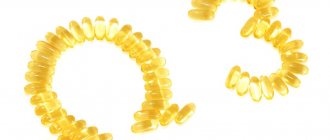Benefits of B9 for breastfeeding
It’s not difficult to guess the benefits of folic acid during breastfeeding. One has only to study the consequences of B9 deficiency.
For mother:
- depression after childbirth;
- apathy;
- decreased lactation;
- fast fatiguability.
For baby:
- slow weight gain;
- decreased immunity;
- deterioration in development, both physical and psychological;
- disruption of the digestive system.
Interesting to know! A sufficient amount of folic acid after birth improves not only the volume of breast milk, but also its quality.
Therefore, taking B9 supplements is of particular importance for nursing mothers.
How to drink folic acid while breastfeeding, description and instructions for use
Folic acid, also called vitamin B9, is important during breastfeeding. The drug is necessary for pregnant women for proper growth of the fetus.
Folates are needed for the normal development of the baby's bones during the period of active growth. The drug is a good preventive measure for the formation of bone defects and is indispensable in preventing anemia.
Doctors called B9 the main component of a growing organism.
Composition and features of folic acid
The element is extremely necessary for a nursing mother, since during breastfeeding it is quickly consumed and passed on to the baby with milk. The drug is produced by manufacturers in two forms:
- solution for intramuscular injections;
- yellow film-coated tablets.
It is not recommended to use the drug on your own; you need to consult a doctor. He will select the required dosage and prescribe the duration of taking the vitamin. The medicine is sold in blisters packed in cardboard boxes or in glass jars. The vitamin contains additional components:
- lactose;
- copovidone;
- stearic acid;
- sucrose;
- potato starch;
- MCC.
The inclusion of auxiliary ingredients in the composition of the drug depends on the manufacturing technologies used by the manufacturers. Vitamin B9 deficiency causes premature birth, delays the development of mental abilities and the growth of the baby. A lack of B9 in a nursing mother can cause heart attack, stroke and other serious pathologies.
How to Identify Folic Acid Deficiency: Symptoms and Signs
A lack of vitamin B9 poses a threat to the health of a nursing mother and her baby.
Vitamin deficiency in a nursing mother is determined by symptoms:
- hair begins to fall out significantly, gray hair appears early;
- the woman is in a depressed, restless state;
- outbursts of aggression and irritability appear, persistent emotional swings form;
- gets tired quickly, her sleep is disturbed;
- heart rate increases, shortness of breath appears;
- Digestion is disturbed, diarrhea, stomach pain bothers you.
If such signs appear, a nursing mother should visit a doctor and get a prescription indicating the dosage and timing of taking the drug. Infants with vitamin deficiency have the following symptoms:
- disruption of the gastrointestinal tract;
- decreased immune strength;
- slow growth, sluggish mental reactions;
- small weight gain;
- pale skin;
- emotional swings;
- loss of appetite;
- sleep disorders.
During lactation, it is important to review your diet; eat a variety of foods containing B9.
Products with vitamin B9 for nursing
Most folates are found in fresh green vegetables and wheat germ. What else can a nursing mother eat with confidence that it will not harm her breastfeeding baby?
A lot of B9 is found in the following products:
- spinach;
- parsley;
- green salad;
- broccoli;
- walnuts;
- beef liver;
- beans.
Slightly less B9 is available in cereals:
- rice;
- cell;
- barley;
- buckwheat;
- manna;
- oatmeal.
A sufficient amount of vitamin B9 is found in all types of cheese, tomatoes, boiled eggs, and citrus fruits. When consuming citrus fruits and tomatoes, mothers must ensure that the baby does not become allergic to them.
There is B9 in watermelons, seeds, vegetables, wholemeal bread, green onions, marjoram, wild garlic, cod liver, trout, horse mackerel, perch, green peas, pumpkin, porcini mushrooms, almonds, cottage cheese, boiled carrots, white cabbage, berries strawberries, currants, raspberries, beets, peaches, bananas, melons, rose hips, as well as sesame and poppy seeds.
Pharmacy drugs
Pharmacies offer Folic acid in its pure form, in pills, drops, and as part of various products.
Product overview:
- Single drug. Includes B9, C. Available in dosages of 100 mg, 400 mg. For nursing mothers, doctors prescribe 500 mcg once for a month.
- Foliber. It contains B9, B12. During the period of breastfeeding, it is prescribed only according to the special instructions of the doctor, 1 tablet once, 1 hour before meals, for 20 days.
- Doppelhertz active Folic acid. Its composition contains B9, C, B6, B12, E. It is prescribed for breastfeeding women against hair loss and for the prevention of heart pathologies. Taken with food, once a day, course - a month.
- Maltofer. Contains: B9, ferric hydroxide polymaltosate. The doctor prescribes taking it once a day during breastfeeding. The duration of treatment is determined only by a specialist.
- Fenyuls Zinc. Includes: B9, B6, zinc sulfuric acid, iron sulfuric acid. During breastfeeding, it is used as a prevention of iron deficiency anemia, provided that the woman does not suffer from pathologies of the gastrointestinal tract. Take once a day, for a long course.
- Folic acid with B6 and B12 from Evalar. Ingredients: Folic acid with the addition of vitamins B12, B6. This is a dietary supplement, not a medicine. Taken only with the recommendations of doctors, usually with food, prescribed for 2 months.
- Hemoferon. Solution for oral use. Consists of: B9, ferric ammonium citrate, additional components. Used only as prescribed by doctors. The usual dose is half an hour before meals, 15 ml once. The exact dosage is measured using a measuring cup, which is included in the package along with the medicine.
There are a number of contraindications to the use of the drug. They should be carefully studied to avoid complications after taking them.
Impact on women and children during breastfeeding
How taking medications will affect a mother and her baby while breastfeeding has not been fully studied. It is possible that both mother and baby are allergic to the components of the drugs. The instructions warn of the possibility of side effects. All these factors must be taken into account before starting treatment.
Maybe a nursing mother will give preference to replenishing the B9 deficiency by reviewing her diet and including healthy foods in her diet.
How to take folic acid during lactation
Only a doctor can prescribe any medications, taking into account any contraindications for the medication. The specialist calculates the volume and regimen of medication and determines the treatment period. Each drug has its own instructions for use during lactation.
Correct dosage
Dosages are prescribed in the instructions for each medicine; based on these instructions, the doctor chooses the dosage and regimen of taking the medicine.
Daily vitamin intake
The daily vitamin requirement takes into account age, lactation time, and the health of the nursing mother and children:
- children under one year old – 50 mcg;
- from one year to 3 years of age – 70 mcg;
- nursing mother – 500 mcg.
The need for folate is significant for the child’s body, from the very beginning of fetal growth in the womb, and then during breastfeeding.
In what cases is it necessary to increase the dose?
During breastfeeding, a woman’s need for vitamin B9 increases significantly; the daily dosage is increased to 500 mcg, taking into account its rapid consumption.
Increasing the dose prevents depression, which often occurs in women after childbirth, and general weakness of the body. An increased dosage of B9 improves lactation and the quality of breast milk.
Complete mother's milk protects the baby from disturbances in intestinal functions, from delays in psychomotor development, and contributes to the proper development of the infant's immunity.
Interaction with other drugs
Taking certain medications significantly reduces the concentration of B9 in the female body. Therefore, the compatibility of folate preparations with other drugs should be taken into account. For example, women taking birth control pills during breastfeeding should first consult a gynecologist.
B9 is poorly absorbed in the digestive tract with simultaneous administration of drugs: Tetracycline, Neomycin, Chloramphenicol. Reduces the absorption of B9 in the intestine by taking antacids: Cholestyramine, Methotrexate, Trimethoprim. The combination of any medications with B9 should be discussed with your doctor so as not to harm the baby.
Contraindications and side effects
A strict contraindication for taking the drug in tablets is an allergy to the components of the drug. If an allergic reaction occurs, the B12 content decreases, and general health deteriorates sharply.
Exceeding the dose and course of treatment provokes the appearance of dermatological problems and disorders of the gastrointestinal tract:
- rash all over the body with hyperemia and severe itching;
- nausea to vomiting;
- flatulence.
When side effects occur in a child during breastfeeding, B9 in tablets is contraindicated.
In an infant these conditions are:
- B12 deficiency;
- skin rashes;
- disorders of glandular metabolism;
- heart failure.
Probably, with such manifestations, contraindications to the use of B9 remain with the child for life. You should take any medications for breastfeeding only as prescribed by a doctor, under the supervision of a specialist. Then you can avoid unwanted side complications for mother and baby.
Source: https://grudnichky.ru/mamam/folievaya-kislota-pri-grudnom-vskarmlivanii.html
Harm and contraindications
Folic acid for women during breastfeeding can be harmful. There will be no benefit if you take supplements without your doctor’s permission and study the instructions. It is necessary to adhere to the dosage and take into account contraindications:
- Individual intolerance and allergies.
- Hypersensitivity to the components of the drug.
- Anemia caused by cyanocobalamin deficiency.
For malignant neoplasms, the vitamin is prescribed with caution, at the discretion of the doctor.
Safe form B9
Folic acid is a synthetic form of vitamin B9. Its non-natural origin may not always have a positive effect on the body. The fact is that the acid is well metabolized only with high activity of the enzyme dihydrofolate reductase. If the enzyme is not active enough, then it will be much more difficult for the synthetic compound to transform into the natural form of B9.
An increased content of unmetabolized folic acid leads to disastrous consequences:
- the risk of developing cancer increases;
- children may develop autism;
- It is more difficult to determine B12 deficiency.
However, this does not mean that folic acid is dangerous during lactation or pregnancy. We all know that this is the main women's vitamin. It's just that the synthetic derivative is not the safest. Such drugs have contraindications, which should be given special attention.
If the correct dosage is observed and metabolism is good, the synthetic compound will only provide benefits.
Which forms are safer? There are two active B9 derivatives: folinic acid and methylfolate. The latter is mainly prescribed in case of detection of a mutation in the MTHFR gene, which is observed in 10-40% of people. The fact is that such a mutation interferes with the absorption of folic and, by the way, folinic acids.
In special cases, folinic acid and methylfolate are prescribed simultaneously. This often occurs with B12 deficiency.
Active forms are taken under the supervision of a physician. At the discretion of the specialist, an individual course of treatment can be developed.
Folic acid during breastfeeding: description, instructions for use
It is not difficult to guess the benefits of folic acid during breastfeeding.
One has only to study the consequences of B9 deficiency. For mother:
- depression after childbirth;
- apathy;
- decreased lactation;
- fast fatiguability.
For baby:
- slow weight gain;
- decreased immunity;
- deterioration in development, both physical and psychological;
- disruption of the digestive system.
Interesting to know! A sufficient amount of folic acid after birth improves not only the volume of breast milk, but also its quality.
Therefore, taking B9 supplements is of particular importance for nursing mothers.
Daily requirement
During breastfeeding, the daily requirement of folic acid is 1.5 times higher than the standard and is (400 mcg) 600 mcg. You can maintain this indicator by taking vitamins in tablet form, as well as eating foods containing folic acid.
For newborns, the required daily dose of vitamin B is 50 mcg. This need grows with age.
If for some reason breast milk does not provide the baby with the required amount of folic acid, the pediatrician may prescribe the child a single drug containing this vitamin or a complex vitamin supplement. Children under six months require a small dose: 25 mcg of the drug.
In addition, it is important to follow measures to prevent diseases of the gastrointestinal tract, since disruption of their functions makes it difficult to fully absorb the vitamin.
The recommended dosage may be increased if the woman previously gave birth to a child with congenital defects of the brain or spinal column. This indicator is also adjusted by the doctor if the nursing mother:
- has a history of liver or kidney disease;
- takes medications to treat type 2 diabetes;
- suffers from sickle cell anemia.
An overdose of vitamin B9 is almost impossible. This can only occur with severe pathologies of the kidneys and liver. Excess vitamin B9 is fraught with increased body weight of the fetus, and can also cause the development of diabetes mellitus and obesity.
Harm and contraindications
Folic acid for women during breastfeeding can be harmful. There will be no benefit if you take supplements without your doctor’s permission and study the instructions. It is necessary to adhere to the dosage and take into account contraindications:
- Individual intolerance and allergies.
- Hypersensitivity to the components of the drug.
- Anemia caused by cyanocobalamin deficiency.
For malignant neoplasms, the vitamin is prescribed with caution, at the discretion of the doctor.
Indications for use
- First of all, this is the treatment of a lack of folic acid in the body of a young mother, including against the background of an unbalanced and inadequate diet.
- As a treatment and prevention of anemia that occurs due to folic acid deficiency:
- macrocytic hyperchromic anemia;
- megablastic anemia;
- anemia that occurs after resection of the stomach or duodenum;
- anemia that is associated with diseases of the small intestine, as well as malabsorption syndrome.
Safe form B9
Folic acid is a synthetic form of vitamin B9. Its non-natural origin may not always have a positive effect on the body. The fact is that the acid is well metabolized only with high activity of the enzyme dihydrofolate reductase. If the enzyme is not active enough, then it will be much more difficult for the synthetic compound to transform into the natural form of B9.
An increased content of unmetabolized folic acid leads to disastrous consequences:
- the risk of developing cancer increases;
- children may develop autism;
- It is more difficult to determine B12 deficiency.
However, this does not mean that folic acid is dangerous during lactation or pregnancy. We all know that this is the main women's vitamin. It's just that the synthetic derivative is not the safest. Such drugs have contraindications, which should be given special attention.
If the correct dosage is observed and metabolism is good, the synthetic compound will only provide benefits.
Which forms are safer? There are two active B9 derivatives: folinic acid and methylfolate. The latter is mainly prescribed in case of detection of a mutation in the MTHFR gene, which is observed in 10-40% of people. The fact is that such a mutation interferes with the absorption of folic and, by the way, folinic acids.
In special cases, folinic acid and methylfolate are prescribed simultaneously. This often occurs with B12 deficiency.
Active forms are taken under the supervision of a physician. At the discretion of the specialist, an individual course of treatment can be developed.
Source: https://deti-77.ru/preparaty/folievaya-kislota-pri-kormlenii-grudnym-molokom.html
Products containing B9
Any nursing mother needs a balanced diet. The table will help determine the list of food components rich in folic acid.
Table. Products containing B9
| Product | Content per 100 g, mcg |
| Peanut | 240 |
| Sunflower seeds | 227 |
| Soybean (grain) | 200 |
| White dried mushrooms | 140 |
| Parsley | 110 |
| Cod liver | 110 |
| Sesame | 97 |
| Beans | 90 |
| Avocado | 89 |
| Spinach | 80 |
Not all of the above products are good for a nursing mother. Your baby may be allergic to peanuts. And nuts are heavy food for a baby under 3 months. It is recommended to introduce kernels into the diet gradually, consuming several pieces at a time and observing the baby’s reaction. The same goes for seeds.
The most useful foods with folic acid for breastfeeding in the initial stages are parsley and spinach. And in small quantities - cod liver, sesame, avocado.
Products with vitamin B9 for milk fortification
Vitamin B9 is found in large quantities:
- in the leaves of green plants: lettuce, spinach, onion, parsley, etc.;
- in citrus fruits.
A large amount of folate is found in:
- green peas;
- beans;
- wholemeal bread.
Smaller amounts are found in eggs, liver and meat.
The results of scientific research prove that even with a proper and balanced diet, young mothers receive an insufficient amount of vitamin B9 from food, since the need for it is increased during lactation. That is why doctors always recommend taking folic acid supplements in the form of pills as a preventive measure for pathologies in newborns and infants.
Additives: instructions for use
Discuss taking folic acid while breastfeeding with your doctor. However, there are general recommendations for the use of such drugs.
When to start taking
It is necessary to start taking B9 supplements before pregnancy. In case of unplanned conception - from the very first month. The earlier the better. We provide appointments throughout the first trimester. Further - at the discretion of the doctor. The drug is then prescribed after childbirth. The main reason is to prevent anemia in mother and baby.
What is the importance of folic and iodine for a child, see the video:
Until when should you drink?
At a safe dose, supplements are taken throughout the entire period of lactation. If the period lasts for a long time, interruptions are possible. The course is discussed with the doctor individually.
Dosage
The dosage of folic acid during feeding is 200-600 mcg per day.
Overdose
If the dosage is exceeded for a long time, the following symptoms may appear:
- bloating and flatulence;
- nausea, vomiting;
- worsening sleep;
- impaired absorption of B12.
Overdose is highly discouraged, especially when breastfeeding.
Side effects and allergies
Side effects that may occur from taking folic acid include:
- anorexia;
- disorders of the stomach and other gastrointestinal organs;
- respiratory dysfunction;
- unpleasant taste in the mouth.
The synthetic form of B9 may cause an allergic reaction. Therefore, after taking the first tablet, it is recommended to monitor the body’s reaction. Itching, redness and hives are sure signs of allergies.
Recommendations for use while breastfeeding
In the postpartum period during lactation, young mothers are recommended to take 200-600 mcg of folic acid. The conditions for using the drug and the dosage should always be agreed with the doctor , since uncontrolled intake of vitamin B9 can:
- seriously affect sleep;
- lead to hypervitaminosis and irritability;
- cause disruption of the kidneys and gastrointestinal tract.
It is not recommended to consume alcohol, tobacco and caffeine, as these products reduce the level of folic acid in the blood . It should also be remembered that some medications also reduce the concentration of B9 in the blood, so you should always consult your doctor.
The doctor changes the dosage of the drug if a nursing woman is taking medications for the following diseases:
- Epilepsy.
- Non-insulin dependent diabetes mellitus.
- Autoimmune diseases (rheumatoid arthritis, systemic lupus erythematosus, etc.).
- If you have kidney pathology.
- If there is liver dysfunction.
IMPORTANT! Do not increase the dosage of the drug yourself under any circumstances, as this can cause serious consequences.
Recommendations for choosing folic acid
Medicines during breastfeeding must be of high quality. Before purchasing, you should read reviews both about the supplement itself and about its manufacturer. It is recommended to pay attention to imported dietary supplements.
Another significant factor is dosage. In pharmacies you can find products specifically for pregnant or lactating women. Each tablet already contains the required amount, which allows you to properly saturate the body with vitamins. Are you taking lactation supplements that already contain folic acid? Then you do not need to purchase additional drugs with B9.
TOP 5 supplements in the form of 5-MTHF
Interesting to know! 5-MTHF is involved in the production of the happiness hormone.
Check out the best supplements that are made in the most bioactive form of B9.
Doctor`s Best, Active folate 800 mcg
Doctor's Best, Active Folate 800, 800 mcg, 60 Veggie Caps
688 ₽
Buy at a discount
Herbal preparation made in the USA. The package contains 60 servings. The dietary supplement is suitable for vegetarians. Covers the daily folate requirement during lactation by 100%.
There are no negative reviews found on the iHerb website. Consumers praise the American product. For a natural form, reasonable price and visible results.
Now Foods, Methyl Folate, 1,000 mcg, 90 Tablets
Now Foods, Methyl Folate, 1,000 mcg, 90 Tablets
922 ₽
Buy at a discount
Country of origin: USA. The product is also available in a dosage of 5000 mcg. The package contains the same number of tablets - 90 pieces.
The product is presented in the biologically active form B9, which ensures easy digestibility. The dietary supplement is suitable for vegetarians.
Overall customer rating: 4.5 points. The disadvantages are minor. They are mainly related not to the drug itself, but to the conditions of purchase.
Life Extension, Optimized Folate, 1000 mcg
Life Extension, Optimized Folate, 100 mcg, 100 Veggie Tablets
865 ₽
Buy at a discount
Country: USA. The package contains 100 herbal tablets. The drug is also available in a higher concentration - 5000 kg.
89% of buyers think this is an excellent, highly effective product.
Thorne Research, 5-Methyltetrahydrofolate, 1 mg, 60 Capsules
Thorne Research, 5-Methyltetrahydrofolate, 1 mg, 60 Capsules
1 615 ₽
Buy at a discount
An American drug that is produced in the biologically active form of B9. Each capsule contains 1.7 mg DFE. The product is also available in 5 mg dosage.
The supplement has good reviews. And only 2-4% of buyers noted the occurrence of side effects.
Allergy Research Group, QuatreActiv Folate 4th Generation 5-MTHF, 90 Capsules
Allergy Research Group, QuatreActiv 4th Generation Phtholate 5-MTHF, 90 Capsules
1 285 ₽
Buy at a discount
American high quality supplement in a natural derivative of B9. Covers the daily requirement by 125%.
Consumers leave only positive reviews. They note the composition, price, reliable manufacturer and comfortable reception.
Folic acid during breastfeeding - instructions - Let's say no to diseases with iMes.website
- Useful product of the week
- Benefits of B9 for breastfeeding
- Harm and contraindications
- Safe form B9
- Products containing B9
- Additives: instructions for use
- When to start taking
- Until when should you drink?
- Dosage
- Overdose
- Side effects and allergies
- Recommendations for choosing folic acid
- TOP 5 supplements in the form of 5-MTHF
- Doctor`s Best, Active folate 800 mcg
- Doctor's Best, Active Folate 800, 800 mcg, 60 Veggie Caps
- Now Foods, Methyl Folate, 1,000 mcg, 90 Tablets
- How and when to give the drug?
- Proven benefits for children
- For anemia
- For autism
- Side effects
- Daily value of vitamin B9
- Indications and contraindications for use during breastfeeding
- The importance of folic acid during pregnancy and lactation
- Folic acid and cancer: data from official studies
- General assessment of cancer risk from folic acid supplementation
- Risks of developing breast cancer when taking folic acid
- Folic acid and prostate cancer risks
- Folic acid and laryngeal cancer
- Recommendations for use while breastfeeding
- Folic acid for mother and child during breastfeeding
- Overdose
- Products with vitamin B9 for milk fortification
- Impact on women and children during breastfeeding
- Operating principle
- Terms of sale
- At what age is it allowed?
- Reviews
- Interaction with other drugs
- How to take folic acid
- Lack of folic acid in infants
- Impact on women and children during breastfeeding
- Rules for taking vitamins during lactation
- Why is folic acid needed?
- For premature babies
- For babies up to one year old
- At kindergarten age
- For schoolchildren
- Storage conditions
- Folate deficiency
Useful product of the week
RUB 1,313 RUR 456★★★★☆ iherb.com Now Foods, Hyaluronic Acid, 50 mg, 60 vegetable capsules - 65%
- Benefits of B9 for breastfeeding
- Harm and contraindications
- Safe form B9
- Products containing B9
- Additives: instructions for use
- Recommendations for choosing folic acid
- TOP 5 supplements in the form of 5-MTHF
- Multivitamin with Folic Acid
- Where can I buy
Folic acid plays an important role during breastfeeding (BF). And a deficiency of the substance leads to unpleasant consequences. How to prevent B9 deficiency? We will talk about recommendations for taking the vitamin and its forms in the article. You will also learn about the benefits and possible harms of folic acid for a nursing mother.
Multivitamin with Folic Acid
Here are the TOP 5 multivitamin complexes, sorted by consumer ratings.
MegaFood, Baby&Me 2, 120 tablets
MegaFood, Baby & Me 2, 120 tablets
4 274 ₽
Buy at a discount
An American product that contains 600 mcg of folate, as well as a number of other important vitamins and minerals. Does not contain artificial or harmful ingredients, suitable for vegetarians.
Judging by the numerous positive responses, the complex improves well-being, hair, nails and skin condition. The disadvantage is the high cost.
Pure Essence, Mother&Child, Formula Master PostNatal
Pure Essence, Mother & Child, Master PostNatal Formula, 120 Tablets
2 852 ₽
Buy at a discount
Vitamin and mineral complex of American origin. There are 120 tablets in a package. Contains a number of useful substances. Particularly rich in ascorbic acid, tocopherol and B vitamins. Folate per serving (4 tablets) 800 mcg.
Many reviews confirm that this is an excellent drug for mother and baby. No unpleasant taste or smell. Noticeable result. However, there are also disadvantages. Some customers have noticed side effects.
Innate Response Formulas, Baby & Me, Mom & Baby Multivitamin, 120 Tablets
Innate Response Formulas, Baby & Me, Mom & Baby Multivitamin, 120 Tablets
5 458 ₽
Buy at a discount
Country of origin: USA. There is another packaging option - 60 pieces. The product is of plant origin, which means it is suitable for vegetarians. Contains a complex of vital B vitamins and other nutrients. Folate is observed in an amount of 600 mcg.
Consumers note that the drug is well tolerated and gives positive results. A small number of buyers believe that this supplement has no effect.
New Chapter, Perfect Postnatal, Multivitamin, 96 Tablets
New Chapter, Perfect Postnatal, Multivitamin, 96 Tablets
2 316 ₽
Buy at a discount
Country: USA. The product is also available in larger packages - 192 and 270 tablets. This is a fermented preparation with a natural composition. Rich in B vitamins, as well as A, C, D and minerals. Includes folate in the amount of 540 mcg, which covers the daily requirement by 90%.
The complex has more positive reviews. Buyers are delighted with their well-being and mood. Everything improved after the 1st course of treatment. Many have noticed restoration of hair growth after childbirth and many other positive results regarding health and appearance. However, there were some negative ones. And the minuses are given by those who did not notice the effect. Side effects have also been identified.
Fairhaven Health, Nursing Postnatal Multivitamin
Fairhaven Health, Nursing Postnatal Multivitamin, 60 Capsules
1 228 ₽
Buy at a discount
American drug. Designed for nursing mothers. The package contains 60 capsules, which is enough for 1 month. The serving per day is 2 capsules. The composition includes folic acid in the amount of 800 mcg and a number of other nutrients. Especially vitamins A, C, group B and D.
The complex has few negative ratings. There are no critical disadvantages. Some mothers noticed an allergic reaction to the components of the drug. Positive reviews indicate the absence of side effects, comfortable use and noticeable results.
Analogs
Among the complete analogues of the monomedicine Folic acid, the following can be distinguished:
- Vitrum folicum. One tablet contains 0.4 mg of active substance. Indications, route of administration and dosage correspond to the original drug.
- Folacin. Contains 5 mg of active ingredient in 1 tablet. It is a therapeutic agent for the elimination of folate deficiency anemia.
Complex preparations that contain other beneficial substances besides folic acid include:
- Foliber. Also contains vitamin B12. Among the contraindications are individual intolerance to the components of Foliber, lactose intolerance, lactase deficiency, glucose-galactase malabsorption. The dosage of folic acid in 1 tablet is 0.4 mg, and cyanocobalamin (vitamin B12) is 0.002 mg, which is the minimum daily dosage.
- Elevit pronatal. This drug is a combination of vitamins and minerals necessary for the health of a pregnant woman and her baby. It contains 0.8 mg of folic acid. Contraindications to taking this vitamin complex are individual intolerance to the components, an excess of one or more substances of the drug in the body, kidney and liver diseases, impaired absorption and excretion of iron, problems with excessive excretion of calcium in the urine.
- Alphabet Mom's health. The uniqueness of this vitamin complex lies in the fact that all the substances contained in it (namely 13 vitamins with folic acid together, 11 minerals and taurine) are distributed among three tablets in such a way that they do not interfere with the absorption of each other. Vitamin B9 is contained in two tablets of 0.3 mg each. Contraindications include sensitivity to the components of the drug, as well as hyperfunction of the thyroid gland. The manufacturer recommends taking each tablet separately throughout the day. But it is also possible to take all three tablets at the same time. But the effectiveness of taking the drug decreases.
- Folio. The drug contains folic acid in the amount of 0.4 mg and 0.2 mg of iodine in 1 tablet. Contraindications include individual intolerance to the components. Should be taken with caution by women with thyroid diseases.
In both my first and second pregnancies, I took regular Folic acid until the 12th week of pregnancy. The gynecologist did not prescribe me any further multivitamins for expectant mothers. In my opinion, with a nutritious, varied diet, the body does not require additional sources of vitamins and minerals, even when a woman is in an “interesting” position.











